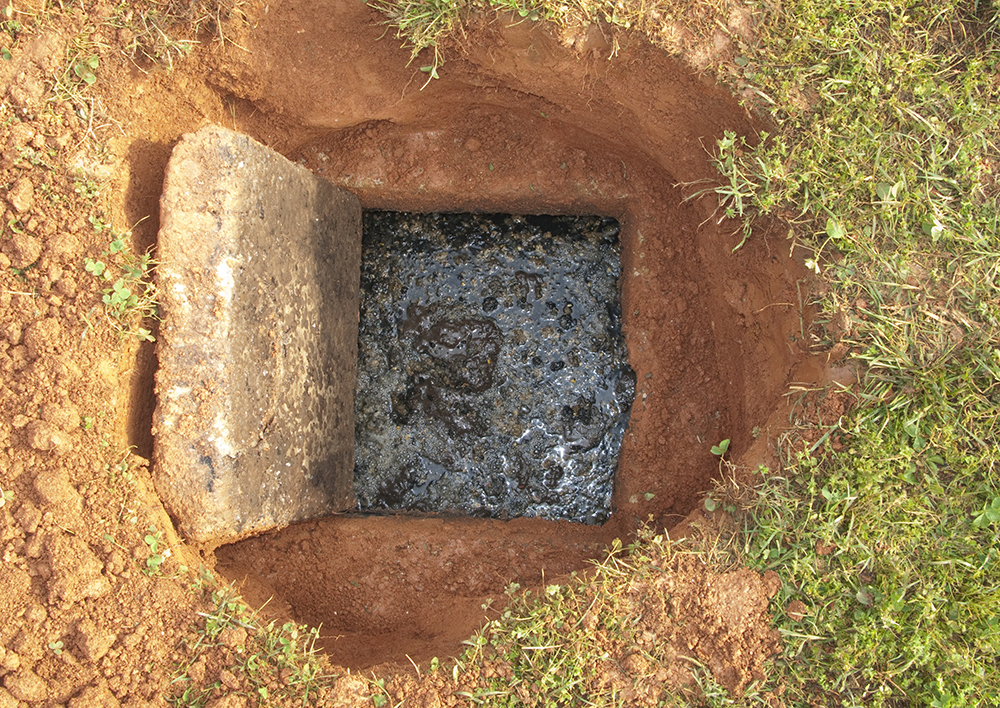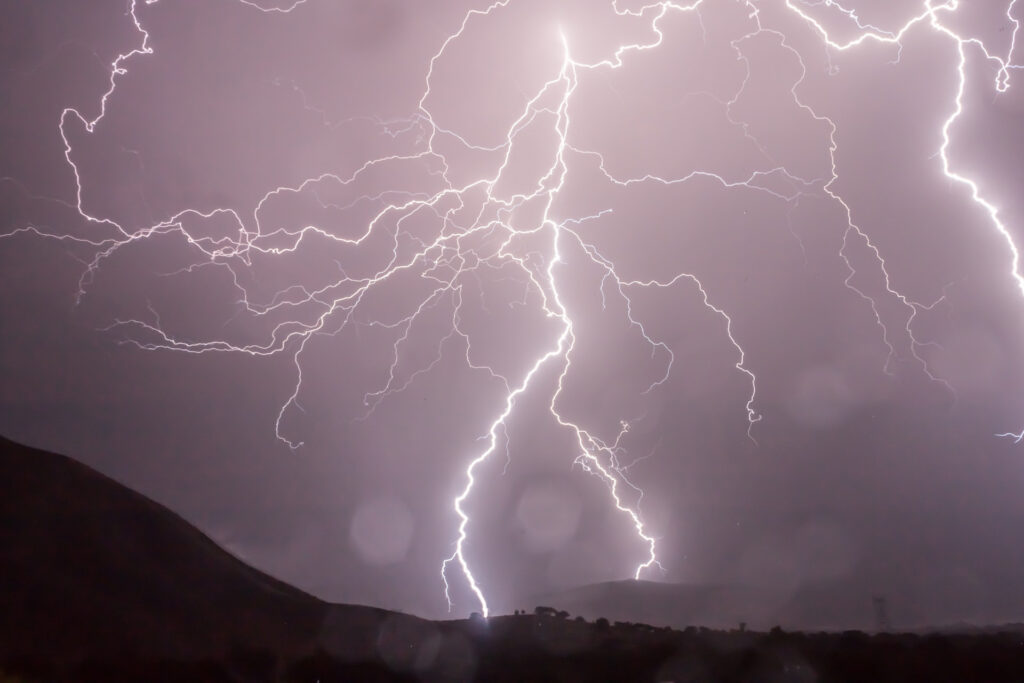
Summer rains have arrived here in the mountains. While they can bring slightly cooler temperatures and more vibrant greenery, heavy rains can spell trouble for homeowners with septic systems on their property. Without warning, the drain begins gurgling after a shower. Minutes later, water is pouring out of the toilet across the bathroom floor. Now it’s a race against time to contain it with the wet/dry shop vacuum. Can you suck it up fast enough? If you dump it into the bathtub, the drain won’t carry it away. You have to close the drain and start filling the tub with it, and after you’ve stemmed the flow, you can begin sucking it up again for disposal out on the lawn. If you’re one of the lucky ones, it’s only water, but for the less fortunate, waste matter flows up from the system into your house. And that stinks! Literally.
What causes this backup, and what can you do about it? Let’s take a look.
Drain field woes
One of the biggest culprits in this scenario is a flooded drain field.
When heavy rainfall saturates the soil around your septic tank, it limits the system’s capacity to release liquids into the soil. This can cause abnormally high levels of liquids to fill up the tank.
If you don’t see flooding on the grass around your drain field, it’s possible your tank may need pumping. When was the last time your septic tank was pumped? Experts recommend pumping every three to five years, depending on usage and tank size. For example, if you live in a two-person household with a large tank, you have a bit more leeway. But if your tank is small (750 gallons), three or four years is the most you may want to wait between pumpings.
I saw the signs, and they opened up my eyes!
What are some signs of a flooded drain field?
- Slow discharge from household drains (sinks, showers, tubs)
- Slow flushing toilets
- Standing water or mushy, spongy ground around the septic tank
- Water back-ups in your basement or around floor drains
- Gurgling sounds from your drains and/or toilets
- Sewage smell around your septic tank
- Backups and flooding from drains and toilets
If your system is flooding in the absence of heavy rain, and it hasn’t been all that long since your last pumping, there are two more possible reasons: Lack of oxygen in the tank caused by heavy grease, or perhaps your drain field pipes have collapsed or become broken. Lack of oxygen can also occur if the soil around the septic system becomes tightly compressed from cars or heavy machinery.
Before the rains come

“They” say an ounce of prevention is worth a pound of cure. Regard-less of who “they” are, let’s just agree. When you know some heavy rains may be coming, there are some steps you can take to get ready, especially if you’ve had previous problems with your system during rainy season.
- Have your septic tank inspected by a professional to be sure it can handle heavy rainfall
- Do not put anything other than bodily wastes and toilet paper into your toilet – NO sanitary napkins, baby wipes, paper towels, disposable diapers, or dental floss
- Use only biodegradable cleaners in your toilets, sinks, and tubs – bleach or other harsh chemicals can kill off your system’s “good” bacteria
- Plant grass above your drain field to aid water absorption
- Keep gutters and runoff water directed away from drain fields
- Don’t drive cars or use heavy equipment over the drain field
- If your system is due for pumping, do it several weeks or several months before the rainy season – DO NOT have your system pumped right after heavy rains when the drain field is saturated, or the tank can pop up out of the ground!
In addition to these steps, get ready for limited water consumption as stormy weather draws near. Some suggestions are to prepare no-cook meals that you can consume with paper plates and cups and disposable flatware to avoid washing dishes on the day or days of heavy rains. Don’t run the dishwasher or washing machine during or close to heavy rains. Refrain from using the garbage disposal. In fact, if you have a septic tank, the less you use the garbage disposal, the better.
During stormy weather
Be prepared. That’s the Boy Scouts’ motto. It’s not always that simple.
Even if you’ve followed the advice above, flooding might still be a possibility. Take these additional steps during heavy rainfall:
- Limit water use – don’t do laundry or dishes, and flush toilets only when absolutely necessary
- Don’t work around the septic tank or walk on the drain field area during mushy or flooded conditions
- If water enters your home through the toilet or drains, be ready with a wet/dry shop vac; two are ever better, because you can dump one outside while the other one is being used
After the deluge
If water still hasn’t receded a few days after the rain has stopped, call a septic tank expert to assess the situation, but as mentioned earlier, never pump out your tank during flooded conditions. Here are a few steps you can take:
- Reduce water usage for a few days by washing clothes at a laundromat and taking sponge baths if you can’t shower at a friend’s house
- Administer a “shock treatment” to your system to reactivate beneficial bacteria and enzymes that digest waste – you may have to do this a few times over a period of a few weeks
Click here for information about a septic shock treatment available at most home and hardware stores.
Staying high and dry

If your septic system backs up in heavy storms, don’t panic. Follow the steps we’ve outlined above to prepare yourself and possibly deal with a water backup if it happens. Remember to limit water usage during rainy weather, but once rainy season ends you can probably breathe easy once again.
Septic video inspection and pumping
Peter Young Home Inspections can arrange for septic video inspection and pumping. Click here to make an appointment.
Buying or selling a home?
Avoid unpleasant surprises! Contact Asheville Home Inspector Peter Young before signing any contracts. Call (828) 808-4980, or click here to make an appointment.